Addiction is a growing issue in communities across North Florida and South Georgia. Whether it’s opioids, alcohol, methamphetamine, or prescription drugs, substance use disorders impact individuals, families, and entire neighborhoods. For those seeking recovery, finding the right rehab center is crucial. But with so many options available, how do you choose the best facility for your needs?
If you’re searching for “drug rehab near me” in cities like Lake City, Gainesville, Valdosta, or Tallahassee, understanding the different levels of care, treatment approaches, and insurance options can help you make an informed decision. The right rehab program offers more than just detox—it provides therapy, medical support, and long-term recovery planning to help individuals build a solid foundation for sobriety.
Types of Drug Rehab Programs
Not all addiction treatment programs are the same. The best rehab center for you depends on several factors, including the severity of your addiction, your medical history, and your personal recovery goals. Below are the primary types of rehab programs available in Lake City, Gainesville, Valdosta, and Tallahassee.
Detox Programs
For many individuals, the first step in addiction treatment is detoxification. Detox is the process of removing drugs or alcohol from the body, which can lead to uncomfortable and sometimes dangerous withdrawal symptoms.
- Medical detox provides 24/7 supervision from healthcare professionals who can manage withdrawal symptoms with medication and supportive care.
- Social detox offers a non-medicated approach with emotional support and counseling to help individuals through the withdrawal process.
Regardless of the detox method, this phase is critical for preparing the body and mind for further treatment. Many rehab centers in North Florida and South Georgia offer medically supervised detox to ensure patient safety.
Inpatient Rehabilitation
Inpatient, or residential, rehab is the most intensive form of addiction treatment. Patients live at the facility full-time, receiving 24-hour care and structured therapy.
- Who benefits? Inpatient rehab is ideal for individuals with severe addictions, co-occurring mental health disorders, or those who have relapsed multiple times.
- What to expect? Daily schedules include therapy sessions, group meetings, medical care, and recreational activities designed to promote holistic healing.
- How long does it last? Most inpatient programs last 30, 60, or 90 days, though some extended programs provide long-term care.
Several rehab centers in Lake City, Gainesville, Valdosta, and Tallahassee provide inpatient treatment, offering a safe and supportive environment for recovery.
Partial Hospitalization Programs (PHP)
PHP is a step down from inpatient rehab but still provides intensive treatment. Patients attend structured therapy sessions during the day but return home or to a sober living environment at night.
- Who benefits? PHP is a great option for those transitioning from inpatient care or individuals who need intensive support but do not require round-the-clock supervision.
- What to expect? Treatment includes individual therapy, group counseling, medication management, and relapse prevention strategies.
Many rehab centers in North Florida and South Georgia offer PHP programs, providing a balance between structure and independence.
Outpatient Programs
Outpatient treatment allows individuals to receive care while maintaining their daily responsibilities. This flexible option is ideal for those with work, school, or family commitments.
- Who benefits? Outpatient programs work well for individuals with mild to moderate addictions, strong support systems, and stable living environments.
- What to expect? Treatment includes counseling, addiction education, and relapse prevention techniques.
- How long does it last? Some programs last a few months, while others offer ongoing support for a year or more.
Several outpatient rehab centers in Gainesville, Tallahassee, Lake City, and Valdosta offer evening and weekend sessions to accommodate busy schedules.
Choosing the Right Rehab Center
With so many treatment options available, how do you decide which rehab center is best for you? Here are some key factors to consider when selecting a drug rehab facility.
Accreditation and Licensing
A reputable rehab center should be licensed and accredited by organizations like:
- The Joint Commission or CARF (Commission on Accreditation of Rehabilitation Facilities)
- State health departments and addiction treatment boards
Accreditation ensures that the facility meets high standards for patient care, staff qualifications, and evidence-based treatment practices.
Treatment Approaches
Every rehab center has its own philosophy and treatment methods. Look for a facility that offers:
- Evidence-based therapies like cognitive-behavioral therapy (CBT), dialectical behavior therapy (DBT), and motivational interviewing.
- Medication-assisted treatment (MAT) for opioid or alcohol addiction, including Suboxone, methadone, or naltrexone.
- Holistic therapies like yoga, meditation, art therapy, and exercise programs to promote overall well-being.
Insurance and Payment Options
Cost is a major concern for many individuals seeking addiction treatment. Fortunately, most rehab centers in Lake City, Gainesville, Valdosta, and Tallahassee accept a variety of payment options, including:
- Private insurance (Blue Cross Blue Shield, Aetna, Cigna, UnitedHealthcare, etc.)
- Medicaid and state-funded treatment programs
- Sliding scale fees and payment plans for those without insurance
Before choosing a rehab center, contact your insurance provider or the facility’s admissions team to verify coverage and costs.
Location and Environment
Some individuals prefer to stay close to home for treatment, while others may benefit from a change of scenery. Consider whether you want a local rehab center near family and friends or a facility in a new location for a fresh start.
The treatment environment also matters. Some centers offer a clinical hospital-like setting, while others provide home-like residences with outdoor spaces and recreational activities.
Drug Rehab Centers in North Florida and South Georgia
Several high-quality drug rehab facilities serve Lake City, Gainesville, Valdosta, and Tallahassee, offering a range of treatment options. Here’s an overview of what’s available in each city.
Lake City
Lake City is home to rehab centers specializing in detox, inpatient rehab, and medication-assisted treatment. Many facilities here provide personalized care plans, helping individuals transition from detox to long-term recovery.
Gainesville
As a college town, Gainesville has a mix of outpatient programs, PHP options, and inpatient rehab centers. Several facilities offer addiction treatment tailored for students and young adults dealing with alcohol and drug abuse.
Valdosta
Valdosta has multiple inpatient and outpatient rehab programs, many of which focus on treating opioid addiction and alcohol use disorder. The city also has a strong recovery community, with numerous 12-step meetings and sober living options.
Tallahassee
Florida’s capital city has an extensive network of detox centers, residential treatment programs, and outpatient rehab clinics. Many Tallahassee rehab centers accept a variety of insurance plans, making treatment more accessible.
The Road to Lasting Recovery
Finding the right drug rehab near you is the first step toward recovery. Whether you need medical detox, inpatient rehab, PHP, or outpatient care, treatment is available in Lake City, Gainesville, Valdosta, and Tallahassee.
Recovery is a lifelong journey, but with the right support system and professional guidance, long-term sobriety is possible. If you or a loved one is struggling with addiction, don’t wait—reach out to a rehab center today and take the first step toward a healthier future.



